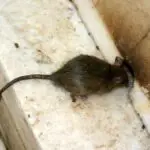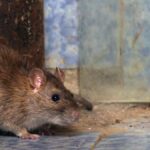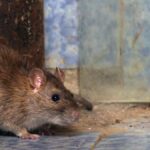Rodents make up a remarkable 40 percent of the total population of mammals on the planet.
Humans make up a significantly smaller percentage. Indeed, when contrasted with all life on the planet, humans make up 1/10th of 1 percent.
With these statistics in mind, rats and mice have a notable impact on the human population on the planet today.
Rodents cause damage and spread disease that directly affects humans in residential and commercial settings.
Those individuals responsible for the safety of commercial buildings need to pay attention to the legal ramifications associated with mice or rats in a business setting.
Where a Legal Obligation for Mice and Rats in a Commercial Setting Arises

Any business enterprise involving individuals making physical contact with real-world premises operated by the venture bears a legal obligation to those individuals who enter or otherwise have access to those premises.
This includes a multitude of businesses, including:
- Retail stores
- Eateries
- Professional offices
- Medial offices and centers
- Hospitals
- Recreational facilities
- Hotels and motels
- Movie theatres
- Other entertainment centers
- Bars, nightclubs, taverns
- Banks and other financial institutions
- Schools
- Churches and other religious centers or facilities
Bear in mind that this list is not exhaustive. Rather, it is intended to provide you a broad understanding of the types of businesses that have a legal obligation to protect people who access a physical location operated by them from dangers that might be presented as a result of the presence of rodents.
A business entity has a legal obligation to protect the safety and welfare of three primary categories of people, including when it comes to issues associated with rodents in a commercial setting.
These categories are:
- Employees
- Patrons
- Suppliers, colleagues, and similarly situated individuals
The Basic Legal Standard of Care
A business owner has a legal obligation to take reasonable action to prevent or eradicate a rodent infestation at the venture’s premises.
In legal terms, the standard of care means that a business is required to take action to protect against or eliminate a rodent infestation that a similarly situated business would pursue under the same or similar set of circumstances.
In addition, maintaining a legal standard of care regarding rodents requires a business to adhere to any laws, ordinances, or regulations about that business’s operations.
Overview of Reasonable Steps to Protect Against and Eradicate a Rodent Infestation
Although some specific steps need to be taken to protect against and eradicate a rodent infestation in a particular industry or business sector, there are practices and actions applicable to businesses of all types.
In other words, there are reasonable steps designed to guard against rodent infestation and to protect the health and welfare of individuals who come into contact with a business that is generally applicable to all commercial ventures, nonprofit organizations, and other entities that have real-world places of operations that people enter, occupy or utilize for different reasons.
These essential steps typically include:
Perform regular inspections to ascertain whether any signs of the presence of rodents exist. Signs of rodent infestation include:
- Gnaw marks
- Scratch marks
- Droppings
- Squealing sounds
- Scratching sounds
- Scampering sounds
In addition to performing regular inspections to identify any signs of the presence of rodents, if their presence is identified, a business owner or manager must take prompt steps to eliminate the situation.
This can be hiring a rodent exterminator to professionally eliminate them from the premises.
In addition to eradicating any rodents on the premises, a business owner or manager also needs to take steps to block entry by rats and mice into the future. This includes blocking any cracks or holes that can provide rodents a way of entering into a business.
Keep in mind that rodents can slip through openings as small as a U.S. quarter.
In addition to preventing or eliminating a rodent infestation, a business owner is also obliged to deal with the aftermath of a rodent infestation. This includes the safe removal of rodent droppings that may have accumulated at the property.
The reality is that rodent droppings can be contaminated with dangerous pathogens that have the potential for causing serious and even fatal health problems.
Consequently, the most effective and safest course you can take to remove rodent droppings from a business’ property is to hire a seasoned, reputable rodent-dropping cleaning professional.
Case Study of How a Business is Responsible for Injuries Sustained by Rodents on the Premises
A case study can assist a business owner or manager come to a far better understanding of a business’s legal obligation to safeguard the property from the dangers associated with rats and mice.
In this case, a mouse infestation occurred at a retail store.
The owners and managers of the shop failed to undertake an appropriate course of action to eliminate the mice from the premises and eradicate (safely) the mouse droppings that litter the premises.
Mouse droppings were left behind throughout the premises, including in the ductwork associated with the business’s HVAC system. The droppings were contaminated with the hantavirus.
When the droppings dried, they started to crumble. The net effect of this process was for dust from the crumbled droppings to become airborne. When they activated the HVAC system, it dispersed dust containing the virus throughout the business premises.
In short speed, employees and patrons of the business inhaled the droppings dust containing the virus.
Ultimately, an employee and two patrons contracted hantavirus.
One of these individuals ended up contracting a severe illness known as hantavirus pulmonary syndrome.
Hantavirus Pulmonary Syndrome – Mortality Rate
About 30 percent of the individuals who suffer hantavirus pulmonary syndrome die from the condition, which happened in this case study.
Following the death of the business patron, that individual’s family took legal action against the business.
They based their claim for damages for the death of their loved one on a contention that the business failed to properly protect patrons of the business from exposure to rodent feces.
They argued that the business failed to conduct proper inspections to identify the presence of rodents on the premises.
In addition, the legal claim alleged that when a rodent issue ultimately was discovered, the business failed to have the situation appropriately remediated or cleaned up.
Consequently, rodent droppings dust containing the hantavirus was circulated throughout the building, resulting in patrons and employees of the business contracting a hantavirus infection. One of these infections resulted in a person developing hantavirus pulmonary syndrome.
The family of the deceased individual was able to pursue what legally is known as a wrongful death claim
Summary and Conclusion
By taking the reasonable steps outlined in this article, a business protects its employees, patrons, and other individuals.
In the end, a business also protects itself from potential legal liability arising from the harm that potentially can be caused by exposure to rodents and their droppings.
* This post is in no way a complete guide for all locations on the legal matters of dealing with a Rodent infestation in a commercial setting. Please check your local laws to ensure that you are fully compliant.








